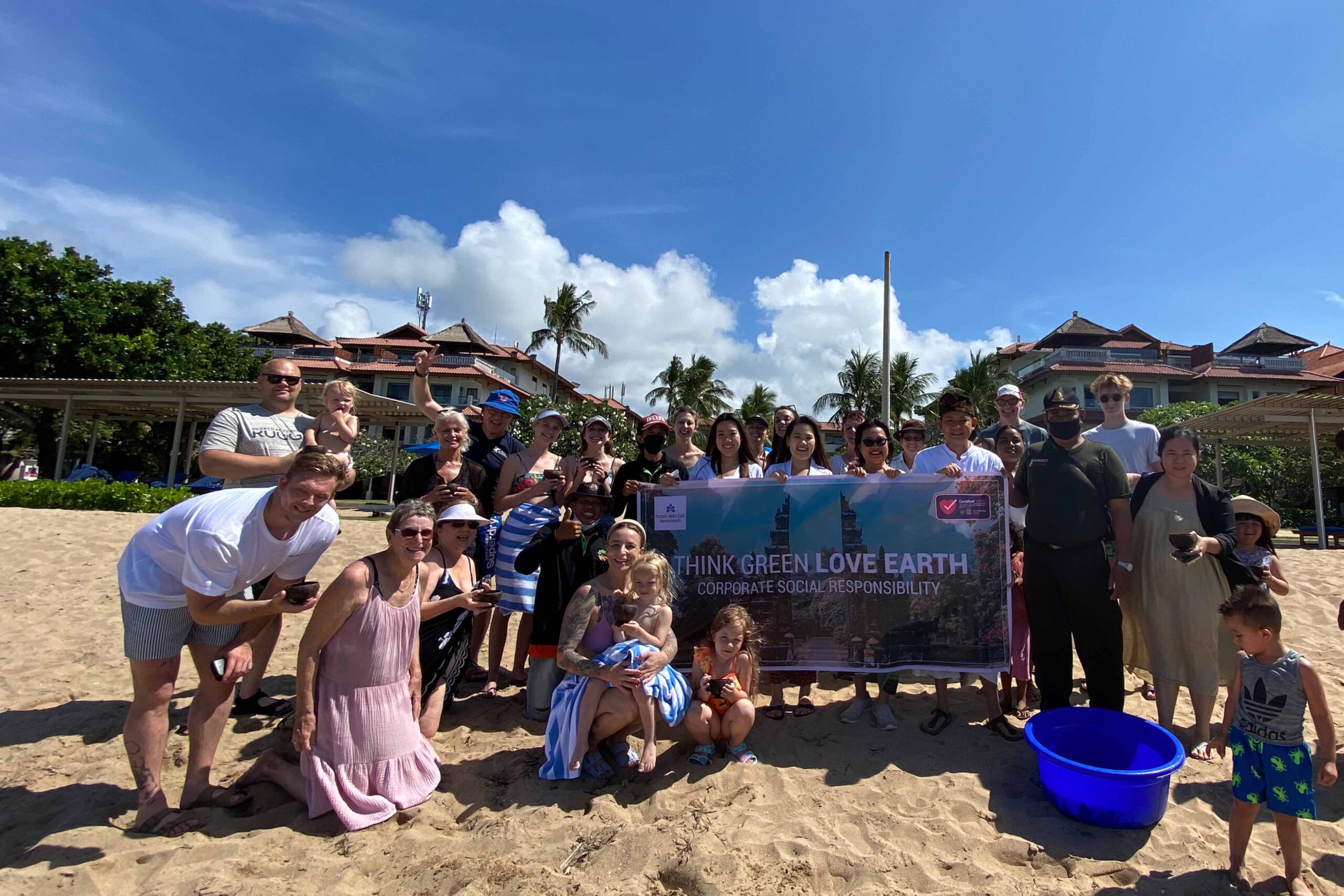Nusa Dua, Bali, Indonesia, 2022-Jun-07 — /Travel PR News/ — The reasons for continuing to preserve a sustainable lifestyle and protecting the environment are the foundations for maintaining both the planet we live on, the community, and also the economy. If we fail to protect the environment, it will pose a good risk to human life, animals, plants, and other ecosystems.
As a commitment to protect the environment for sustainability, Hotel Nikko Bali Benoa Beach collaborates with the Bali Lecceria Turtle Farm located on the shore of Tanjung Benoa, by releasing the olive ridley hatchlings or commonly known as the gray turtle.
33 olive ridley baby turtles were hatched at the Bali Lecceria turtle conservation on 5th June and were followed by another 17 hatchlings the next day. The hatchlings were released on the beach in front of Hotel Nikko Bali Benoa Beach on 7th June 2022.
According to World Wildlife Fund, the olive ridley turtle eats fish, sea cucumbers, plants, and also jellyfish. Unfortunately, turtles cannot distinguish between jellyfish and plastic waste that is currently circulating in the ocean, thus threatening the extinction of this omnivore. “Therefore, apart from releasing baby turtles at our resort, the beach cleaning to collect plastic wastes is also one of our regular sustainability programs.” Said Masaya Hasebe, General Manager of Hotel Nikko Bali Benoa Beach.
He continued, “This is the third time for our resort to release the baby turtles, the first was in 2018 and the second was in 2021. Those turtle eggs were found, hatched, and released with our conservation on the beach in front of our resort. This year, we strive to commit to turning the sustainability program into real action by collaborating with our neighbor Bali Lecceria Turtle Farm to create a broader sustainability movement. Apart from commemorating World Environment Day & World Ocean Day fall in June, it also coincides with the celebration of the Balinese Hindu holy day, namely Galungan. We hope that these small activities and actions we implemented can contribute to the sustainability of the planet we live on. Other sustainability actions we have taken include the Soap for Hope to improve waste management as well as community hygiene, using local products by buying fish and vegetables directly from local fishermen and farmers, and planting Indian Almond trees on our beach to protect coastal regions. Meanwhile, our upcoming sustainability for the environment is planting mangrove trees.”
Quoting from seeturtle.org, the presence of sea turtles is very important:
- Turtles help control their prey. For example, leatherbacks help manage the amount of jellyfish in the ocean, and hawksbills help reefs by eating sponges that compete with them for space.
- Turtle nesting helps beaches. The nutrients left behind by eggs and hatchlings that don’t survive provide an important source for coastal vegetation.
- Hatchlings are an important source of food for many animals. Birds, fish, mammals like raccoons, and others rely on plentiful hatchlings to survive during nesting season.
- They are important for coastal economies and native communities. Many places rely on turtle watching or diving for jobs and income and several indigenous communities revere sea turtles as part of their cultures. Plus there are emotional and psychological benefits to seeing a sea turtle in the wild.
- Green turtles grazing on seagrass is an important way to keep seagrass beds healthy. And healthy seagrass benefits many species and stores carbon.
The release of the hatchlings went smoothly and was witnessed by the Bali Natural Resources Conservation Center team, resort guests, and residents.

